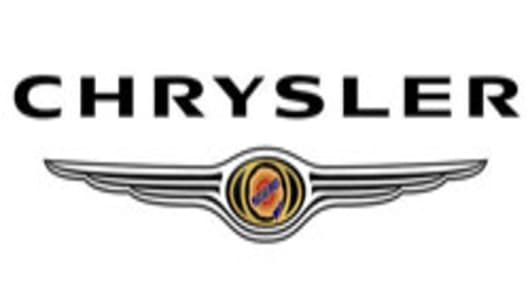The privately held No. 3 U.S. automaker last week outlined plans to reduce its roughly 3,600 U.S. dealerships to a much smaller number that will represent all three of its brands: Chrysler, Jeep and Dodge.
The plan marks an extension of efforts already under way at Chrysler to encourage dealers to merge with or buy out other dealers to create "superstores" for its three brands.
But by more aggressively restructuring its retail network, Chrysler expects to be able to stop making many of the 30 models it now offers -- such as the Dodge and Chrysler-branded versions of its top-selling minivan.
The promise is that in turn will reduce product development and marketing costs for Chrysler and boost profits for a smaller network of allied dealers able to save on inventory costs and spend more on marketing and dealership improvements.
Some dealers had expressed concern heading into Sunday's annual meeting with executives that Chrysler could look to strong-arm smaller dealers out of the market or pull out of some areas altogether.
"I was a little down, but now I'm more upbeat," said Jeff Dubose, a Dodge dealer in Wilmington, North Carolina, since 1965. "I thought they were going to force dealers, but that doesn't seem to be the issue."
About 55 percent of Chrysler dealers now carry all three of its brands.
The new restructuring -- known internally as "Project Genesis" -- is aimed at encouraging mergers between dealers in cities and suburban areas, executives said.
"I think the big concern among some of the small dealers was that somehow they got the conception that Chrysler wanted to get rid of the small dealers, which is not the case," said John Schenden, who owns a Chrysler and Jeep dealership in Thornton, Colorado.
Dealers who attended a meeting led by Chrysler's recently named sales chief and vice-chairman Jim Press said he had not offered any targets for the number of dealerships or vehicle models to be cut.
Several said they expected to be briefed in the next month on more detailed plans.
"Everybody needs to be patient and take a deep breath," said Hayden Elder, who owns Elder Chrysler-Dodge-Jeep in Athens, Texas, near Dallas.
"They're not trying to take the little guys out. They're trying to get the metro areas back in line, and when it happens it's going to be great."
Chrysler is owned by private equity company Cerberus Capital Management, which bought an 80 percent stake in the company from Daimler AG last August.
'Rocking Toward a Solution'?
Since appointing former Home Depot Inc Chief Executive Robert Nardelli to run the company, Cerberus has been expected to shake up Detroit's business practices and some Chrysler dealers said they saw that already happening.
Joel Lieberman, a dealer from East Hampton, New York, said he sold his General Motors Corp franchises two month ago to buy a Chrysler, Jeep and Dodge store because he believed Chrysler's new Wall Street owners would succeed where Daimler failed.
"They're going to streamline it and make it better, and that's just what this company needs," Lieberman said. "These guys are on the ball and rocking toward a solution in the auto industry that you haven't seen in 100 years."
Press, who was hired away from Toyota Motor Corp last year, said Chrysler dealers were positive about a separate initiative announced this month to throw in more options on 12 models, effectively cutting prices.
"When times are tough and the economy's tough and the stock market's going haywire, you ought to lower your price and help people make it through," Press said. "As a small American company that's privately held, we can do that."
Press said Chrysler's 2008 sales goal was to hold retail market share as it cuts back on loss-making sales to car rental agencies that it previously relied on to support production.
"On retail we should do about the same. Our share will go up a little bit because the market's going to be more difficult," Press told Reuters.


